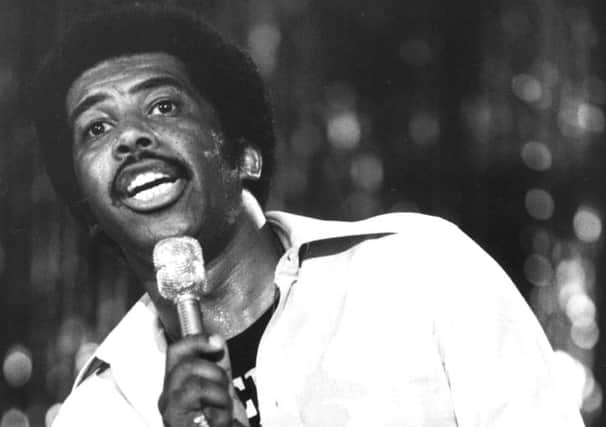Obituary: Ben E King, singer


Ben E King was the stage name of Benjamin Earl Nelson, who was one of the earliest and most identifiable American soul singers of the late 20th century. Celebrated for his transatlantic hits through the late 1950s and early 1960s, both as a member of the Drifters and as a solo singer – his voice graced such iconic songs as There Goes My Baby, Save the Last Dance For Me and Spanish Harlem – it was for 1961’s Stand By Me that he was most famous, particularly when it was rediscovered by a new generation two and a half decades later, having soundtracked the hit coming-of-age movie of the same name.
King was born in North Carolina and raised for the first nine years of his life in the rural countryside before his family moved to Harlem, New York at the insistence of his father, who had designs on entering the restaurant business.
Advertisement
Hide AdAdvertisement
Hide AdAlthough the young King initially found the change disconcerting, particularly due to the noise of the city, he soon adjusted, and would spend much of his teenage years singing in the then-fashionable doo-wop style with his school friends.
King has said he was a good kid, never drinking or getting into fights. His earliest experiences of singing in public came in his church choir and in his father’s restaurant. He also joined doo-wop groups with friends, initially one named The 4 Bs (with two other members named Billy and one named Bobby; they played the Harlem Apollo together), and then at the age of 20 he became a member of The Five Crowns.
It was this group which led him to fame, albeit by an unusual route. The Drifters weren’t so much a group as a brand name owned by their manager George Treadwell, and they had already had more than 15 members and a handful of modest hits on the US R&B charts when Treadwell sacked the entire line-up and replaced them with The Five Crowns in 1958.
Now signed to Atlantic Records, the match was immediately made in heaven. King co-wrote and sang on the new group’s first single and mainstream US number two hit There Goes My Baby the next year, and the 12 other songs he sang with the Drifters before leaving in 1960 due to a contract dispute with Treadwell included the only American chart-topper of his career Save the Last Dance For Me.
Having departed the Drifters but maintaining his relationship with Atlantic’s Atco label, King (now using his stage name for the first time, having gone by his birth name with his earlier groups) enjoyed a period of productivity and success between 1960 and 1963, with hits including the summery, Latino-themed and Phil Spector-produced groove of Spanish Harlem, the dramatic and much-covered torch song I (Who Have Nothing), and Stand By Me, a yearning, timeless plea for companionship. Much of his peak came at the height of the Brill Building era, with the latter song being penned by famed songwriters Jerry Lieber and Mike Stoller.
Although King’s chart career would tail off as the mid-1960s approached and the British Invasion of American popular music took hold, demand for him as a live performer never really went away, and he said he didn’t really find his true voice until he was in his late 20s – in other words, after his chart success had ended.
A hard-working success story, as was typical of the times, he honed his vocals on package tours of the American states with artists like Paul Anka, Chuck Berry and Fats Domino, with the black and white performers segregated when they reached the Southern states.
After some less dazzling singles in the latter half of the 1960s, King would return once more to popular attention briefly in 1975 with the more mature and of-its-moment soul-funk groove of Supernatural Thing Part 1, which happened because his old sponsor and label boss at Atlantic Ahmet Ertegun re-discovered him at a concert in Miami and invited him back to the label.
Advertisement
Hide AdAdvertisement
Hide AdFurther projects in the latter part of his career included 1977’s Benny and Us, a collaborative album recorded with Dundee funk group Average White Band, although the success of Stand By Me once more in 1986 (it spent three weeks at number one in the UK) took him pleasantly by surprise.
Involving himself with his charitable Stand By Me Foundation in later life, Ben E King continued to play live shows until the year before his death. As a member of the Drifters and a solo artist he was a member of the Rock and Roll Hall of Fame, while his four biggest hits have been inducted into the Grammy Hall of Fame and Stand By Me has been called a Song of the Century by the Recording Industry Association of America.
He died of natural causes, and is survived by his wife Betty, whom he married in 1964.